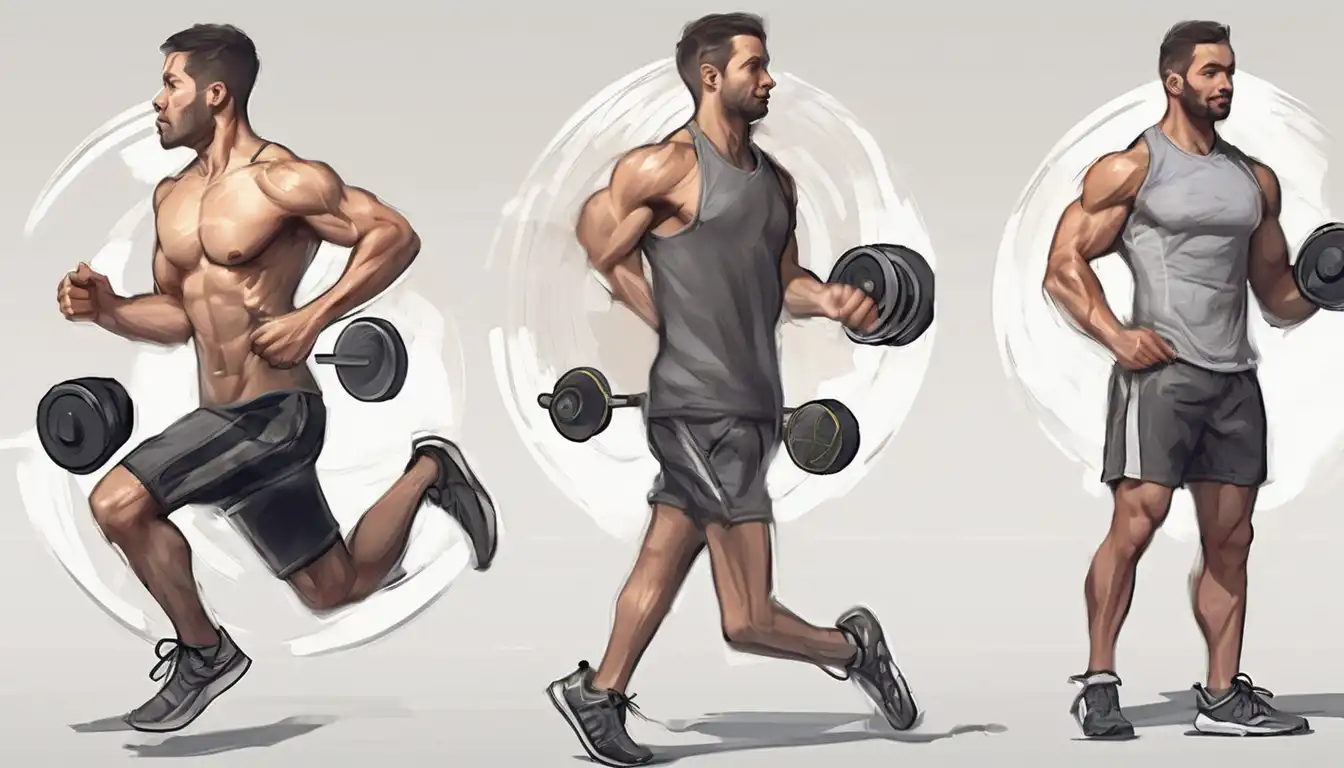Getting Started with Your Fitness Journey
Embarking on a fitness routine can feel overwhelming, especially if you're new to exercise. However, starting a consistent workout plan is one of the most rewarding decisions you can make for your health and wellbeing. This comprehensive guide will walk you through every step of creating and maintaining an effective fitness routine that fits your lifestyle and goals.
Setting Realistic Fitness Goals
Before you even think about which exercises to do, it's crucial to establish clear, achievable goals. Whether you want to lose weight, build muscle, improve cardiovascular health, or simply feel more energetic, your goals will determine the direction of your fitness journey. Start with SMART goals - Specific, Measurable, Achievable, Relevant, and Time-bound. For example, instead of "I want to get fit," aim for "I will walk 30 minutes daily and lose 5 pounds in the next month."
Types of Fitness Goals to Consider
Different goals require different approaches. Weight loss focuses more on cardiovascular exercise and calorie deficit, while strength building emphasizes resistance training. Consider what matters most to you and prioritize accordingly. Remember that you can always adjust your goals as you progress.
Choosing the Right Exercise Types
A balanced fitness routine typically includes four main components: cardiovascular exercise, strength training, flexibility work, and balance exercises. Each plays a vital role in overall fitness and prevents workout plateaus.
Cardiovascular Exercise
Cardio exercises get your heart pumping and improve endurance. Beginner-friendly options include brisk walking, cycling, swimming, or using elliptical machines. Aim for at least 150 minutes of moderate-intensity cardio per week, broken into manageable sessions.
Strength Training Basics
Strength training builds muscle and boosts metabolism. Start with bodyweight exercises like squats, push-ups, and planks before progressing to weights. Focus on proper form rather than heavy weights to prevent injuries.
Flexibility and Balance
Don't neglect stretching and balance exercises. Yoga or simple stretching routines improve flexibility and reduce injury risk. Balance exercises become increasingly important as we age.
Creating Your Weekly Workout Schedule
Consistency is key to fitness success. Design a schedule that fits your lifestyle while allowing for adequate recovery. A sample beginner schedule might include three days of cardio, two days of strength training, and daily stretching.
Sample Beginner Schedule
- Monday: 30-minute walk + full-body stretching
- Tuesday: Bodyweight strength training (squats, push-ups, planks)
- Wednesday: Active recovery (light walking or yoga)
- Thursday: 30-minute cycling + stretching
- Friday: Strength training focusing on different muscle groups
- Saturday: Fun activity (hiking, dancing, swimming)
- Sunday: Rest day
Essential Equipment for Beginners
You don't need an expensive gym membership to start your fitness journey. Many effective workouts require minimal equipment. Consider investing in comfortable workout clothes, supportive shoes, and perhaps a yoga mat. Resistance bands and dumbbells are affordable additions that expand your exercise options.
Home Workout Essentials
For home workouts, focus on space-efficient equipment. Resistance bands, stability balls, and adjustable dumbbells offer versatility without taking up much room. Many excellent bodyweight exercises require no equipment at all.
Proper Form and Technique
Learning correct exercise form prevents injuries and ensures you get the most from your workouts. If you're new to strength training, consider working with a personal trainer initially or watching reputable online tutorials. Pay attention to alignment, breathing, and controlled movements.
Common Form Mistakes to Avoid
Beginners often make similar mistakes: rounding the back during lifts, locking joints, holding breath, and using momentum instead of muscle control. Slow, deliberate movements with proper alignment yield better results than rushed repetitions.
Nutrition and Hydration for Fitness
Exercise alone isn't enough - proper nutrition fuels your workouts and recovery. Focus on balanced meals with lean proteins, complex carbohydrates, healthy fats, and plenty of vegetables. Hydration is equally important; drink water before, during, and after exercise.
Pre- and Post-Workout Nutrition
Eat a light snack containing carbs and protein about 30-60 minutes before exercising. After your workout, consume protein to aid muscle recovery. Remember that fitness and nutrition work together to achieve your health goals.
Tracking Your Progress
Monitoring your improvements keeps you motivated and helps adjust your routine as needed. Track measurements, workout performance, energy levels, and how your clothes fit. Consider keeping a fitness journal or using apps to record your journey.
Non-Scale Victories
Don't focus solely on weight loss. Celebrate other achievements like increased stamina, better sleep, improved mood, and clothing fitting better. These non-scale victories often provide the most meaningful motivation.
Staying Motivated Long-Term
Initial enthusiasm often fades after a few weeks. Combat workout boredom by varying your routine, finding exercise partners, setting new challenges, and rewarding milestones. Remember that consistency matters more than perfection - even short workouts count.
Overcoming Common Obstacles
Time constraints, lack of energy, and plateaus challenge every fitness journey. Plan workouts for your most energetic times, keep exercise clothes handy, and have backup plans for busy days. If you miss a workout, simply resume your schedule without guilt.
When to Seek Professional Guidance
If you have health concerns, injuries, or specific goals, consider consulting fitness professionals. Personal trainers create customized plans, while physical therapists address injury prevention. Nutritionists can help optimize your diet for your fitness objectives.
Listening to Your Body
Learn to distinguish between normal workout discomfort and pain signaling injury. Rest when needed, and don't push through sharp pain. Adequate recovery is as important as the workouts themselves for long-term success.
Building Sustainable Habits
The ultimate goal is making fitness a permanent part of your lifestyle. Focus on developing habits rather than pursuing quick fixes. Find activities you genuinely enjoy, and view exercise as self-care rather than punishment.
Starting a fitness routine is a journey of self-discovery and improvement. Be patient with yourself, celebrate small victories, and remember that every workout brings you closer to your health goals. The most important step is simply beginning - your future self will thank you for taking that first step toward better health and vitality.
